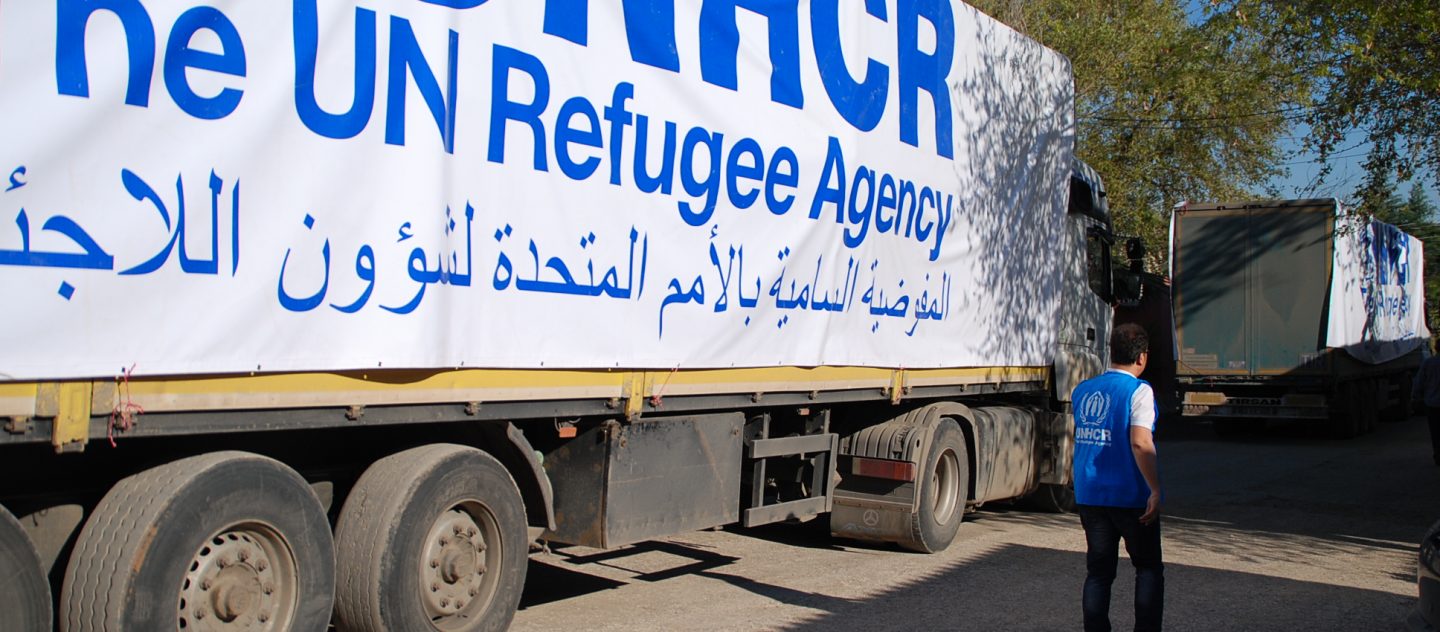Following the adoption of UN Security Council Resolution 2165, UNHCR – as part of the OCHA coordinated humanitarian response – assumed its engagement in the cross-border humanitarian response from the South of Turkey in July 2014. On 11 July 2020, the UN Security Council Resolution that enables the cross-border humanitarian response through the Bab Al-Hawa border crossing was renewed for twelve months until 10 July 2021.
Through the cross-border humanitarian operation, together with its partners, UNHCR provides emergency lifesaving assistance to internally displaced persons and other vulnerable people in need of humanitarian assistance. The humanitarian assistance includes the provision of core relief items, shelter support and protection services.
In addition, UNHCR co-leads the Protection, Shelter/Non-Food Items (NFI) and Camp Coordination and Camp Management (CCCM) Clusters. All Clusters operate within the inter-cluster mechanisms and closely follow the humanitarian developments in north-west Syria and contribute to inter-agency emergency preparedness and response plans accordingly.
The Protection Cluster brings together over 125 members, with three Sub-Clusters focused on Child Protection, Gender Based Violence and Mine Action. It also covers a Protection Monitoring Task Force and a Housing, Land and Property Technical Working Group, as well as a Technical Working Group on Inclusion of Persons with Disabilities. The Cluster prioritizes the provision of lifesaving emergency protection services to newly displaced populations and to deliver specialized protection services to communities and individuals in need and at risk, including using outreach capacity and mobile teams. In addition, the Cluster continues to inform advocacy and the overall response through protection monitoring, while also supporting capacity development support of cluster members to strengthen programming, information collection and advocacy on protection concerns, and do-no-harm efforts.
The Shelter/NFI Cluster coordinates the efforts of over 75 member organizations in the cross-border humanitarian operation. The Cluster addresses emergency shelter and non-food item needs by providing in-kind assistance as well as cash or voucher assistance. It promotes household and community resilience. The Cluster also raises awareness and provides technical guidance on housing, land and property rights relevant for humanitarian shelter activities.
The CCCM Cluster coordinates the efforts of 74 member organizations providing cross-border humanitarian assistance in north-west Syria. Activities of the Cluster focus on coordinating and monitoring responses to the multi-sectoral needs in over 1,000 IDP sites that host 1.47 million IDPs (nearly 280,000 families) and, on behalf of the humanitarian community, tracks IDP movements.
Currently, there around 2.6 million IDPs in north-west Syria, who are estimated to be in need of humanitarian assistance. New and protracted IDPs share the same urgent needs, in an area that has limited shelter options and where the conflict has caused the destruction of civilian infrastructure, including health facilities, schools, bakeries, and has disrupted the provision of basic services. Half of the IDPs are children and many are people with specific needs. The population is now facing economic hardship that compounds the already dire situation.
Since the start of 2020, UNHCR has significantly increased its response by delivering core relief items and shelter materials to provide assistance in north-west Syria. So far this year, UNHCR has organized over 60 transshipments across the border, carrying humanitarian supplies like blankets, hygiene kits, mattresses and tents for some 790,000 people. Through its partners, UNHCR has also reached some 133,000 individuals with protection services, such as information dissemination and referrals.
In the context of the COVID-19 outbreak, UNHCR has, jointly with partners, put in place mitigation measures and has increased, prioritized and expedited transshipments and distributions of hygiene kits. UNHCR continues to closely monitor its partners’ activities to ensure the continuity of the humanitarian response.

